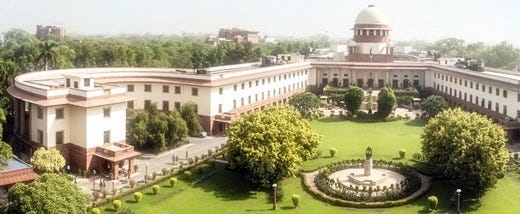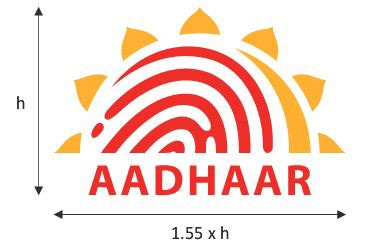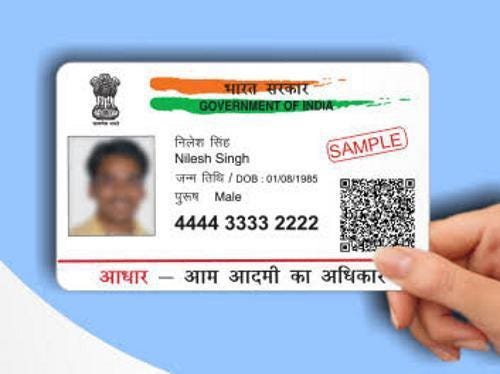Supreme Court strengthens the shaky AADHAAR foundation.
Strikes proper balance between “privacy concerns” and issues of “targeted subsidies”
Strikes proper balance between “privacy concerns” and issues of “targeted subsidies”
The Supreme Court on 26th September, 2018 pronounced, by 4–1 majority, its verdict upholding the constitutional validity of the Aadhaar Act as well as the general schema supporting the issuance of Aadhaar cards. It has been widely reported in the media that the Apex Court has held that the Aadhaar Project does not tend to create a “surveillance state” and that it cannot be construed as infringing the privacy of the individual, which, of course, has recently been independently declared by it to be a Fundamental Right.
Going behind the headlines
Howsoever important the aforesaid part of this verdict may be, the newspaper headlines are barely reporting, and in many case, absolutely omitting to highlight the various provisions of the Aadhaar Act / rules / regulations and executive circulars that have been struck down. It is felt that the Supreme Court’s Judgement is a very balanced and sagacious one. It permits the State to ensure that targeted subsidies reach the deserving citizens, while weeding out fraudulent / duplicate and impersonation cases. At the same time, the Supreme Court has clearly ruled that the private data of any individual cannot be placed in the hands of a private agency “either for the purpose of identification or otherwise”. The objective of this piece is to highlight such parts of the Apex Court’s Judgement
Privacy Matters
As per the plain reading of the section 33(1), disclosure of information, including identity information or authentication, can be made only upon an order of a Court, not below the rank of a District Judge. The Supreme Court has now ruled that the person whose private information is proposed to be disclosed shall be given an opportunity of hearing before any such order is passed. The Supreme Court has also struck down Section 33(2) which pertained to disclosure of such information in the interest of national security, in pursuance of the authorisation of an officer not below the rank of Joint Secretary of Government of India. The Court has ruled that the officer concerned must be the level of higher than that of the Joint Secretary. In order to make the process judicial as well as judicious, it would be preferable if a sitting Judge of the High Court were to be associated in the process. The State has, however, been given the liberty re-enact section 33 (2) in accordance with this stipulation. The Apex court has also struck down parts of Section 57 which allowed “anybody corporate or person” to use Aadhaar card for establishing the identity of an individual, in pursuance to any contract to this effect. The Court was of the view that providing this access to private operators would necessarily been providing them access to the personal information of a citizen, it would be a gross intrusion into his privacy. Similarly, a mere contractual arrangement would not be enough; there must be a backing of law in this regard.
PAN weds Aadhaar
The Supreme Court has, however, clarified that State and its instrumentalities, if permitted under law, could use the Aadhaar number on mandatory basis for identification and other ancillary purposes. The Court upheld the validity of the newly-inserted Section 139AA of Income Tax Act, 1961, which makes it mandatory for the Permanent Account Number (PAN) of the individuals to be linked with the Aadhaar number. This was found necessary to overcome the malaise of duplicate/ multiple PAN numbers which were being used by some unscrupulous individuals to evade and avoid income tax liability. The broader implication of this ruling is that if an appropriate enactment is made, the State is at liberty to provide Aadhaar as a mandatory basis for identification. However, mere executive instructions shall not suffice. For instance, the Centre can make suitable amendments in the appropriate statute to mandate that issuance of passports or for registering as an elector under the Representation of People Act shall require Aadhaar linkage. Such enactment, if framed, could not be unconstitutional merely on the ground of the compulsory Aadhaar linkage.
Aadhar must for subsidies, not otherwise
Of course, the Supreme Court has ruled that where explicit subsidies, paid out of the Consolidated Fund are concerned, Aadhaar linkage could be made mandatory. However, Court has incorporated into its directions the assurance submitted by the Attorney General that “no deserving person would be denied a benefit of scheme on the failure of authentication”. In other words, even in case of subsidy-oriented schemes, mere technical failure to authenticate the identity shall not be a reason enough to deny a benefit to any citizen, if he is otherwise deserving and eligible. In such cases, other forms / modes of identity cards could not be utilized. The Court has also narrowed down interpretation of the definition of “benefit and services” under Section 7 and has clearly ruled out that in the absence of any law, executive directives of bodies like CBSE, NEET, JEE and UGC etc. making Aadhaar mandatory as a mode of identification are unconstitutional.
School kids don’t need it
The Supreme Court has also declared that the Right to Free and Compulsory Education to children between 6 and 14 years of age is now Fundamental Right and the same cannot be regarded as either a benefit or a service. Thus, no educational institution or school could insist on the child possessing an Aadhaar Card either in getting admission into the school or appearing in any examination. Of course, the permission of the parents or the natural guardian would be necessary where the minor opts to get an Aadhaar card issued on purely discretionary basis. In an important aspect, Supreme Court has ruled that the child, on gaining majority at the age of 18 years, could apply to get his data deleted from the Aadhaar database, if he is not interested in subsidy-oriented schemes of the State. However, the ruling of the Court is silent as to whether any citizen, who has already voluntarily registered for the Aadhaar, can get his information deleted, if he is not an Income Tax payee / assessee.
Linkage to Bank Accounts Unconstitutional
The Court has also ruled that circulars pertaining to the bank accounts being compulsorily linked with Aadhaar as well as Aadhaar being mandatory for mobile telephony are unconstitutional. Importantly, insofar as the bank accounts are concerned, the Court has struck down rule 9 of the Prevention of Money Laundering (Maintenance of Records) Rules, 2005 and the notifications issued in this regard there under. The Court was of the view that making Aadhaar mandatory for existing bank accounts and freezing account in case of failure to do so, was also hit by Article 300-A of the Constitution, which deals with the constitutional, if not the Fundamental Right to Property. As regards cognizance of offences, such as breach of privacy and unauthorized communication of personal data, the Court has held that under section 47, the private person aggrieved by such a breach could also, independently of the UIDAI, could also file a criminal complaint in a competent Judicial Court. Thus, the initiative in this regard remains in the hands of the private citizen, while the Authority is not precluded from launching prosecution in this regard.
Fair, Just and Equitable
In summary, many important aspects of Apex Court’s Judgement lie embedded in small-print the media headlines have not been able to capture the same, especially in face of the well-orchestrated campaign by the Government as well as the UIDAI harping upon the basic fact that the Aadhar has, in general, been held to be constitutionally valid. An informed reading of the pages 540 to 567 of the Judgement would reveal that the Hon’ble Apex Court has struck down many potentially intrusive and even oppressive sections of the Aadhaar Act and the associated circulars to make the overall scheme of Aadhaar a fair, just and equitable one within the framework the Indian Constitution. It is almost as if the Supreme Court has strengthened the slightly shaky foundation of the Aadhar.
___________________________________________________________________
K.B.S. Sidhu. The author is an IAS officer of 1984 batch of Punjab cadre. The views expressed are his own.
He can be reached on kbs.sidhu@gmail.com or @kbssidhu1961 or https://www.facebook.com/kbs.sidhu
___________________________________________________________________






